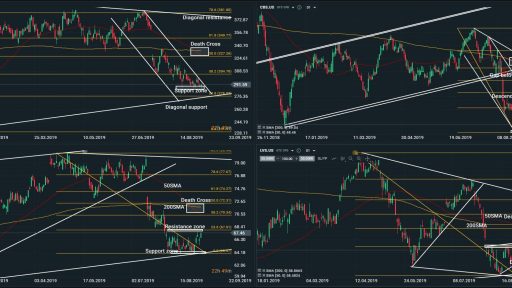- Home
- >
- Stocks Daily Forecasts
- >
- Death Crosses in among the largest stocks from the service providers sector

Death Crosses in among the largest stocks from the service providers sector

Gold intersections and lethal intersections are one of the known signals in technical analysis and relate to the relationship between short and long-term moving averages. The golden intersection is perceived as a bullish signal. Deadly is seen as a bearish signal - it's time to shorten the action in question and warn investors to act on the situation.
It is in the services sector that the service providers field has stood out with four of the largest companies in the industry that have recently received a death cross effect.
CBS (CBC) received its deadly crossing in late August, canceling the reverse phenomenon earlier in the month. Analysts reacted mixed after news that CBS and Viacom would merge. The company's shares have since fallen 16% in the last month, though since the beginning of the year, the shares are down 5%. However, analysts' average ratings remain buy.
CSX (CSX) registered its deadly intersection last week, with the gap between the two averages already around 2% of the share price. The negative effect of the tariffs took with them the transport company and this was reflected in the company's latest reports. Over the past 90 days, shares have fallen 9%, while the S & P500 has risen 4% during this time. Despite the weak sentiment, however, analysts have set a buy rating.
Last week, a deadly intersection hit Las Vegas Sands (LVS) as well. This happened again this year, with the last such crossing in April. Stocks have recently received a lower rating, with the summer moving rather sharply in both directions. For the past 90 days, the shares have been trying to recover, which is encouraging for analysts and traders, so the stock is again a buy recommendation.
At the end of August, Netflix reflected on its death cross chart. The distance between the two averages is already around $ 4. A video streaming leader may face serious difficulties if a recession occurs in the coming months, with shares down about 14% over the last three months. However, they are up 8% for the year. Despite poor reports and prospects, the company has a buy rating.
 Trader Martin Nikolov
Trader Martin Nikolov Read more:
If you think, we can improve that section,
please comment. Your oppinion is imortant for us.















